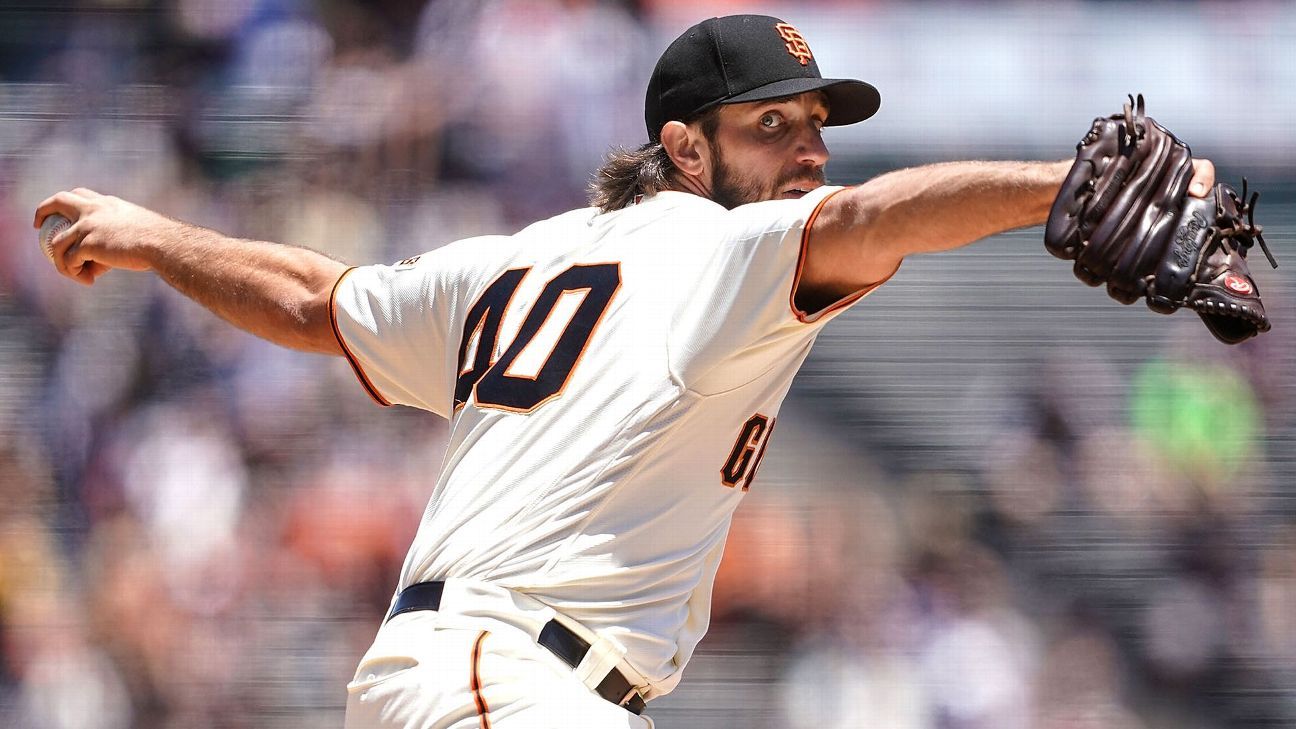The trade deadline is two weeks from Wednesday. And remember: July 31 is the only trade deadline this year. None of those August waiver deals in years past, like Justin Verlander going to the Astros in 2017 or the Yankees acquiring Andrew McCutchen last season. That also means teams have two weeks to decide if they’re contenders or pretenders, and what happens between now and then could potentially open up a trade market that right now is somewhat limited in available talent.
As always, there will be many relievers moved and there could be some intriguing starting pitchers traded — including one very big name with a very big history of pitching well in the playoffs. In fact, when Madison Bumgarner carried the Giants to the World Series title in 2014, he carried a wild-card team. Does that give hope to all those teams that might not win a division title but remain in the chase for a wild card? Maybe. But those teams must weigh the odds of just making the playoffs, let alone defeating one of the powerhouse teams in the American League or the Dodgers in the National League.
Let’s have some fun and speculate a little on what might happen by July 31. Let’s find one player every team should acquire or trade away — with the general guideline that we can’t put Bumgarner or any other player on five different teams. After all, if the Giants do trade him, only one team can acquire him.
AL East
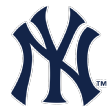 New York Yankees: Acquire Madison Bumgarner
New York Yankees: Acquire Madison Bumgarner
The Yankees don’t need to pick up a starting pitcher. A playoff rotation of Masahiro Tanaka, James Paxton, Domingo German and CC Sabathia is perfectly fine for the state of pitching in 2019. All four own better-than-average ERAs and when combined with the Yankees’ bullpen should give New York enough pitching to go all the way, and that’s before factoring in Luis Severino (although it’s looking more and more like the Yankees can’t count on him for 2019).
Except Paxton and German have never pitched in a playoff game, Sabathia is old and doesn’t pitch deep into games and the bullpen is really only four dependable relievers deep, depending on how you feel about Chad Green‘s performance and Dellin Betances‘ return from injury. No, it’s not 2014 and trading for Bumgarner and expecting a similar level of October dominance isn’t realistic; but do you want this guy on the mound in a big game? Of course you do. The Yankees haven’t even been to a World Series since winning in 2009. This is the guy most likely to help push them over the top.
 Tampa Bay Rays: Acquire Dominic Smith
Tampa Bay Rays: Acquire Dominic Smith
They need offense, but it’s not clear any of the hitters available are upgrades over what they already have in their mix-and-match lineup. So, they’d have to think outside the box. Smith doesn’t have an obvious role in New York: Pete Alonso is the first baseman, and Smith isn’t really a left fielder, where he’s getting time with the Mets. With Tampa Bay, he can DH, play some first base or some occasional left field and get a chance to see the field more regularly. The Rays already have two lefty-hitting first base/DH types in Nate Lowe and Ji-Man Choi, but Choi has just a .727 OPS since early May.
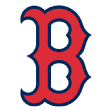 Boston Red Sox: Acquire Ian Kennedy
Boston Red Sox: Acquire Ian Kennedy
They already acquired Andrew Cashner, who had been surprisingly effective with an awful Orioles team, but it doesn’t take an MIT rocket scientist to figure out the team still needs more bullpen help. Kennedy has been effective for the Royals with a 3.41 ERA and strong peripherals: 45-to-8 strikeout-to-walk ratio and just two home runs allowed in 45 innings. He could serve in any late-inning capacity, including closer.
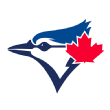 Toronto Blue Jays: Trade Marcus Stroman
Toronto Blue Jays: Trade Marcus Stroman
Stroman has had a bounce-back season — actually, that’s not quite accurate. He basically has been the same pitcher as 2018, except for his ERA:
2018: 5.54 ERA, 0.8 HR/9, 3.2 BB/9, 6.8 SO/9
2019: 3.25 ERA, 0.8 HR/9, 2.8 BB/9, 7.2 SO/9
He has been a little better around the edges, and he has been healthy. He also is under team control through 2020, which makes him a valuable trade chip. The Blue Jays won’t be contenders next season, so it makes sense to cash in Stroman.
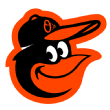 Baltimore Orioles: Trade Mychal Givens
Baltimore Orioles: Trade Mychal Givens
With Cashner gone, there isn’t much trade value here, and the O’s aren’t likely to deal Trey Mancini. Givens has been a steady, durable reliever, and while he isn’t having his best season (4.50 ERA, eight home runs in 36 innings), the stuff is still there with 51 K’s. That would still make him the second-best reliever on the Nationals, although with the animosity between the two organizations, maybe a trade here is unlikely. Givens still could land with another contender as deep bullpen depth.
AL Central
 Minnesota Twins: Acquire Noah Syndergaard
Minnesota Twins: Acquire Noah Syndergaard
The Twins have no glaring weaknesses. Entering Monday, they led the AL in runs per game, just a hair better than the Yankees and Red Sox. Minnesota had the fewest blown saves at any point of a game in the majors with just six (Rocco Baldelli’s handling of the bullpen has been one of the underrated keys to the season). The rotation ranked second in the AL in ERA behind only Tampa Bay. The Twins have a chance at the best record in the AL and home-field advantage — and I would think avoiding a potential Game 5 or Game 7 at Yankee Stadium or Minute Maid Park is something to push for.
Derek Falvey and Thad Levine have focused on small, cost-efficient moves during their tenure running the Twins. Now it’s time to think big. If the Mets make Syndergaard available, he’s a great fit for Minnesota — for 2019 and beyond, since starters Jake Odorizzi, Kyle Gibson and Michael Pineda are all free agents at season’s end. They’d probably have to part with top prospect Royce Lewis or outfielder Alex Kirilloff and a pitcher like Brusdar Graterol or Jordan Balazovic, but Syndergaard could be a beast away from the circus in Queens. Plus, as they say, flags fly forever.
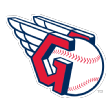 Cleveland Indians: Acquire Nicholas Castellanos
Cleveland Indians: Acquire Nicholas Castellanos
Buster Olney wrote about Cleveland’s dilemma in shopping Trevor Bauer (and closer Brad Hand):
According to FanGraphs, the Indians’ chances of winning the division are just under 10%, and their chances of earning a wild card are at about 36%. So, they’re at worse than 50-50 odds at the moment to get into the postseason. After a couple of weeks of games against American League Central opponents, Cleveland will have to run a gauntlet of teams in August — the Houston Astros, Los Angeles Angels, Texas Rangers, Boston Red Sox and New York Yankees.
There is serious interest in Bauer despite the right-hander’s inconsistency this season, and rival teams are frothing after Hand, the left-handed closer whose contract will keep him under team contract at a solid rate through the 2021 season. The trade value for each player might never be higher than it is right now.
Still, before they get to that August gauntlet, the Indians have 14 games in a row against the Tigers, Royals, Blue Jays and Royals again, starting Monday and running through July 28. That’s when the Indians will decide whether to make this trade deadline a lot more interesting.
My take: If they knew more about the health of Carlos Carrasco and Corey Kluber, it would be easier to deal Bauer. For now, they need Bauer in the rotation (even if they do desperately need help on offense). I would keep Bauer and try to improve the offense around the fringes and hope Jose Ramirez learns to hit again. If the division title is a long shot, you never know what might happen in the postseason with a rotation of Bauer, Kluber, Shane Bieber and Mike Clevinger (and maybe Carrasco).
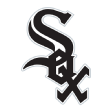 Chicago White Sox: Trade Alex Colome
Chicago White Sox: Trade Alex Colome
Jose Abreu is a free agent, but the White Sox value his leadership and will presumably look to bring him back for 2020. The White Sox acquired Colome in the offseason from the Mariners for Omar Narvaez, and Colome has been excellent as the closer, with 20 saves in 21 opportunities, a 2.21 ERA and .132 average allowed. He is under team control for another year, and while this season has proved it’s not that easy to build a bullpen, this is the kind of player who has higher value at the trade deadline than during the offseason.
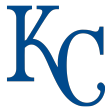 Kansas City Royals: Trade Ian Kennedy
Kansas City Royals: Trade Ian Kennedy
Yes, Whit Merrifield‘s name will continue to be brought up, but general manager Dayton Moore isn’t going to trade him. Merrifield’s four-year, $16.25 million extension signed last winter makes him even more valuable, so it’s likely he would cost a team three major league-ready young players. Moore also said that he can’t imagine Alex Gordon in another uniform (plus Gordon has 10-and-5 veto rights), so that leaves Kennedy as one the guy the Royals probably deal.
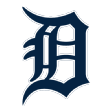 Detroit Tigers: Trade Shane Greene
Detroit Tigers: Trade Shane Greene
Teams will be asking about Matthew Boyd, who has a 3.95 ERA with 152 K’s in 114 innings. (He has the fourth-highest strikeout rate in the majors, behind three guys named Cole, Scherzer and Sale.) Boyd certainly would net a nice return, in part because he is still cheap and under team control through 2022. But that’s why I wouldn’t trade him. The Tigers can try to build a rotation around Boyd, Spencer Turnbull, Casey Mize and Matt Manning in the immediate future. That leaves Greene, who is having a career year with 22 saves and a 1.04 ERA.
AL West
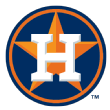 Houston Astros: Acquire Marcus Stroman
Houston Astros: Acquire Marcus Stroman
This one lines up perfectly. The Astros love to trade for a pitcher with more than one year left of team control (see Justin Verlander and Gerrit Cole). Acquiring Stroman improves a rotation that has struggled to fill the back end behind Verlander, Cole and Wade Miley. Fast-forward to October and Stroman also gives them a third right-handed starter to match up against the Yankees and their righty-heavy lineup. Finally, with Cole a free agent, Stroman would provide insurance for 2020 in case Cole signs elsewhere. The question: What will it take to get Stroman? The Blue Jays will ask for Kyle Tucker.
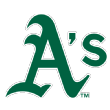 Oakland Athletics: Acquire Caleb Smith.
Oakland Athletics: Acquire Caleb Smith.
The A’s already added Homer Bailey, but they still need an actual good starting pitcher. Without another addition to the rotation, they’re just headed for another loss in the wild-card game (or, escaping that, a division series flameout). Smith is a great fit for Oakland’s park and a perfect fit for Billy Beane’s payroll. The A’s have some toolsy prospects they can dangle in front of the Marlins, including Jorge Mateo or Austin Beck (while still holding onto the cream of the system, pitchers Jesus Luzardo and A.J. Puk).
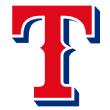 Texas Rangers: Acquire Brandon Belt
Texas Rangers: Acquire Brandon Belt
Just about everything has gone right for the Rangers, and a lot has gone wrong for the Astros. And Texas still begins the week nine games behind Houston — and Oakland has passed the Rangers, as well. I don’t think you can sell out a team that is still in the wild-card chase, so I’m not trading Mike Minor or Lance Lynn — plus you want them in your rotation when you move into the new park in 2020. They need a first baseman and Belt’s numbers would take a leap moving over from San Francisco. The Giants will have to pay down part of Belt’s contract (he is signed for 2020 and 2021 at $17.2 million per season), but he would be a major upgrade over Ronald Guzman.
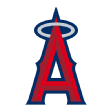 Los Angeles Angels: Trade Kole Calhoun
Los Angeles Angels: Trade Kole Calhoun
After sweeping the Mariners, the Angels’ playoff odds went from 1.3% all the way up to … 2.3%. It’s difficult imagine a second-half run here as they’d have leap over the Rangers, Red Sox, Indians and A’s just to win the second wild card and at least three of those teams are more talented. They’re probably the most likely team not to do anything at the deadline. Calhoun is having an OK season at .238/.323/.485 and has either a $14 million team option for $1 million buyout for 2020, making him a cheap rental, so he could provide a useful bench piece/platoon outfielder for a team like the Indians, Phillies or Cubs.
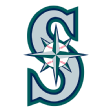 Seattle Mariners: Trade Roenis Elias
Seattle Mariners: Trade Roenis Elias
The Mariners would love to trade Dee Gordon. Nobody wants Gordon and his .293 OBP and $13.8 million salary for 2020. I’m not sure anybody really wants Mike Leake, who has alternated some good outings (complete-game win over the Astros in June, 7⅔ scoreless innings against the Cardinals on July 3) with some terrible outings (eight runs against Baltimore in June, knocked out in the first inning against the Angels in his most recent start). Jerry Dipoto will try to trade Gordon and Leake, but he’ll have to eat most of their money just to get a low-level prospect.
NL East
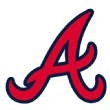 Atlanta Braves: Acquire Will Smith
Atlanta Braves: Acquire Will Smith
Smith is the best reliever available (unless the Padres decide to offer up Kirby Yates), a lefty who gets righties out and is in the midst of a second straight dominant season. Every contending team will be in on him, as every contending team could use bullpen help. The Braves, however, have the deepest farm system of the contenders and should take advantage to add a key piece for their playoff run. The idea of acquiring both Smith and Bumgarner has been tossed out there and it’s an intriguing consideration, but that would take a buy-in from Braves ownership and signing Dallas Keuchel might already fit the “one big move” you’re going to get from penny-pinching Liberty Media.
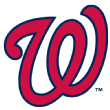 Washington Nationals: Acquire Shane Greene
Washington Nationals: Acquire Shane Greene
The good thing about Greene is that he is under team control for another season, so if the Nationals can acquire him, they would actually enter 2020 with two good relief pitchers — a novel concept that Mike Rizzo should consider trying. With their only-the-Orioles-are-worse 5.93 bullpen ERA, the Nationals would be wise to add more than just Greene, however, and look for additional help such as Sam Dyson and Reyes Moronta of the Giants.
 Philadelphia Phillies: Relievers … or starters
Philadelphia Phillies: Relievers … or starters
After Monday’s blowout loss to the Dodgers, the Phillies fell to 15-22 since the beginning of June. Their staff ERA is 26th in the majors during that span. For the season, the bullpen has 23 saves and 12 blown saves. The rotation ERA since May 22 is 5.26. Sure, the park doesn’t help, but they need help up and down the staff — a disappointing scenario since they believed back in March that pitching depth was going to be a strength. The farm system also has been disappointing, with several of the top prospects struggling or battling injuries, leaving their ability to make a blockbuster kind of trade in doubt.
 New York Mets: Trade Todd Frazier
New York Mets: Trade Todd Frazier
This blurb was supposed to be all about Zack Wheeler, then he landed on the injured list on Monday with shoulder fatigue. As Jeff Passan wrote in ESPN’s trade deadline page, Wheeler’s injury “more or less destroys his trade value. He had interest far and wide across the league. Perhaps a team still takes a crack in hopes he returns, but the Mets’ hopes to cash in at the deadline have evaporated.”
Wheeler still might return in time to make one final start before the trade deadline, but this is just the latest disaster. Without rehashing all the crimes and misdemeanors that have happened this season, let’s just say things haven’t worked out and they began the week with playoff odds of 6%, according to FanGraphs.
So, it’s not impossible! But not likely. General manager Brodie Van Wagenen has a difficult choice: After going all-in during the offseason, do you punt on 2019? That could mean still trading Wheeler for whatever you can get (he is a free agent), but also trading Syndergaard and others. It doesn’t seem to be in Van Wagenen’s DNA to admit his plan for contention backfired. In Miami on Friday coming out of the All-Star break, a reporter asked if the team’s record — 40-51 at the time — was on him, and Van Wagenen’s response was: “I think any time a team struggles it’s on the organization.”
Should the Mets trade Syndergaard? I’d probably keep him and hope for better results in 2020 — from the entire organization. That leaves Frazier as an easy trade candidate as a role player somewhere, but that’s hardly a deal that will restock the farm system like a Syndergaard deal.
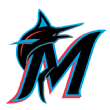 Miami Marlins: Trade Caleb Smith
Miami Marlins: Trade Caleb Smith
We could list “trade Sergio Romo,” but that would be boring. The Marlins can’t hit, the farm system isn’t exactly as pretty as the Miami Beach Botanical Garden and the bullpen isn’t very interesting. What they do have are some young starting pitchers. Smith has a 3.46 ERA and 94 K’s in 78 innings, while missing time with hip inflammation. He is back now, and while he is inexpensive (under team control through 2023), it might be time to cash in on him and get some position player prospects. After all, by the time the Marlins have a chance to be competitive, Smith will be deep into his arbitration years — and the Marlins will be looking to trade him anyway.
NL Central
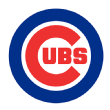 Chicago Cubs: Acquire Ken Giles
Chicago Cubs: Acquire Ken Giles
The Cubs really should be running away with this division. Their run differential entering Monday was plus-67, as compared to the Brewers’ minus-24, and yet the Cubs held just a 2.5-game lead over Milwaukee. And taking the division still might happen for the Cubs even if they don’t do anything. The rotation has been healthy and fine, and now the pen has Craig Kimbrel. The biggest weaknesses have been at center field (Albert Almora Jr. hasn’t hit) and at left field (Kyle Schwarber has been only a league-average hitter with below-average defense); but those aren’t glaring have-to-fix kind of holes, and there aren’t that many good bats available anyway (David Peralta could be a fit if Arizona moves him). So maybe just go for another upgrade in the pen. Giles has been terrific (1.45 ERA, 53 K’s, two home runs in 31 innings), as he has rediscovered his slider. Given Kimbrel’s early struggles, Giles would even offer another option for the ninth inning.
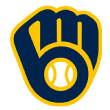 Milwaukee Brewers: Acquire Zack Wheeler
Milwaukee Brewers: Acquire Zack Wheeler
The Brewers are 19th in the majors with a 4.71 rotation ERA, but that has ballooned to 5.62 in July. Bumgarner would be a possible fit, but the Brewers probably don’t have the minor league depth to beat out other teams for his services — or for one of the other pitchers with team control beyond 2019. Wheeler is obviously a wild card given his health, but the Brewers are in a position where they have to roll the dice.
 St. Louis Cardinals: Trade Kolten Wong
St. Louis Cardinals: Trade Kolten Wong
For all the complaints about the pitching, it’s the offense that has been the bigger problem, ranking 11th in the NL in runs per game, while the pitching is third best in runs allowed. Most of the rumors have them seeking pitching help. Wong could be part of a pitching package, with Yairo Munoz taking over at second base. The best bet for the Cardinals, of course, remains on Paul Goldschmidt and Matt Carpenter improving their production.
 Pittsburgh Pirates: Trade Corey Dickerson
Pittsburgh Pirates: Trade Corey Dickerson
This makes sense:
#Pirates are 4 games under .500 & 17 games under .500 against teams > .500. Next 9 are 3 in STL, then home for 3 w PHI & 3 more w STL. They will have played 101 gms. If I’m GMNH, team has to go at least 5-4 for me to consider adding. If 3-6 or worse, it’s over. Time to sell.
— David Todd (@DTonPirates) July 15, 2019
Trevor Williams just allowed eight runs in his most recent start. He allowed eight runs over 12 starts during his incredible hot streak in the second half of last season. The point: The Pirates should not be buyers. They’re not going to trade All-Star closer Felipe Vazquez, although it would be fascinating to see what he could net in return, given his team-friendly extension. That leaves mostly a bunch of spare parts (Dickerson, Melky Cabrera, Francisco Liriano). Given what happened last year, maybe it’s better if the Pirates think small this year.
 Cincinnati Reds: Trade Tanner Roark
Cincinnati Reds: Trade Tanner Roark
It’s not quite time for the Reds to wave the white flag, but they are in last place and have eight teams ahead of them in the wild-card race. Barring a run that gets them to .500 before July 31, they probably will become sellers, and Roark is a pending free agent. He would have more trade value than Yasiel Puig, another free agent who is hitting .260/.306/.502 (after a terrible April) but who might be viewed as too much of a disruptive headache for a team to want him.
NL West
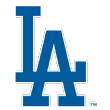 Los Angeles Dodgers: Acquire Kirby Yates
Los Angeles Dodgers: Acquire Kirby Yates
The Dodgers aren’t a perfect team — the catchers haven’t hit much and maybe they’re a little too left-handed in the lineup — but this is the best team of this run that will reach a seventh straight division title. The biggest flaw, however, is the bullpen. It’s not terrible — 10th in the majors in ERA — and it will be better in the postseason when Kenta Maeda or another starter is moved there. Still, the guys in front of Kenley Jansen have yet to prove their reliability, and Jansen himself has struggled in October. The Dodgers need a big-time reliever to shore up the endgame. This is basically their Gleyber Torres-for-Aroldis Chapman moment. Do what it takes to get Yates.
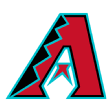 Arizona Diamondbacks: Acquire bullpen help
Arizona Diamondbacks: Acquire bullpen help
Like the Reds, the next two weeks will tell us which direction the Diamondbacks go. FanGraphs gives them a 17% chance of making the playoffs; but how much in prospect capital do you want to surrender merely for a wild-card run? True, Zack Greinke could pitch that game and it could give them a chance. On the other hand, they even could listen to offers on Greinke (but he makes $35 million over each of the next two seasons) or outfielder David Peralta (who is signed through 2020). Most likely, it’s a minor addition in the bullpen or a bench bat.
 Colorado Rockies: Acquire Trevor Bauer
Colorado Rockies: Acquire Trevor Bauer
The up-and-down Rockies lost their final six games before the All-Star break, dropping their playoff chances from 27% to 11.6%. Then they began their second half with a 17-9 loss on Saturday to the Reds and a 19-2 loss in the first game of a doubleheader to the Giants on Monday. Coors Field has been so ridiculous this year that it’s almost impossible to evaluate Rockies players, but those two blowouts probably suggest the need for pitching help. I suggest Bauer only for the entertainment value of his explaining the analytics of pitching at altitude.
 San Diego Padres: Trade Kirby Yates
San Diego Padres: Trade Kirby Yates
After getting swept by the Braves to begin the second half, the Padres have seen their playoff odds dip to 7.2% entering Monday. Even then, they’re not going to catch the Dodgers, so they’re playing for a wild card. That’s a bigger deal for the Padres — who haven’t made the playoffs since 2006 — than it is for other organizations, but another year of patience is probably the wise choice here. If they do make a trade, it should be a starting pitcher under team control beyond 2019, such as Stroman or Syndergaard.
Barring that, they should look to cash in on Yates. He is not a one-year wonder — he was great in 2018, as well — but he has just one year of team control, and his trade value will never be higher. In the year of the home run, he has allowed just one in 41 innings while striking out 64. Intradivisional trades are rare, but the current regimes of the Padres and Dodgers have worked together before.
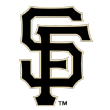 San Francisco Giants: Trade Madison Bumgarner (and others)
San Francisco Giants: Trade Madison Bumgarner (and others)
Farhan Zaidi gave this group one last chance, as he had a quiet offseason. But as the Giants stumble to a third straight losing season, it’s clearly the end of an era, and the difficult rebuilding process must officially begin. That will start with trading Bumgarner, as difficult as it will be. Buster Posey was the best player on the 2010-14 Giants that won three World Series, but Bumgarner was the most valuable in October. He won Game 4 of the NLDS as a rookie, then tossed eight scoreless innings in Game 4 of the 2010 World Series. In 2012, after Barry Zito beat Justin Verlander in Game 1, Bumgarner beat Doug Fister 2-0 in Game 2. Then came Bumgarner’s heroic effort in 2014, the greatest we’ve ever seen — or likely will see — in October.
